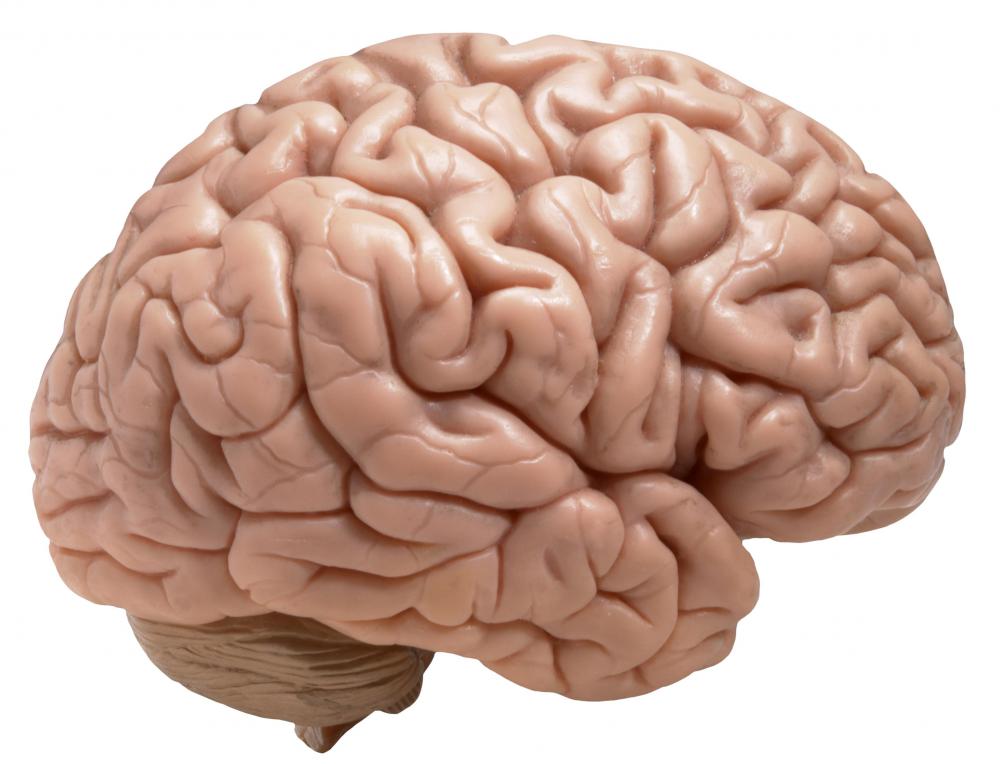At WiseGEEK, we're committed to delivering accurate, trustworthy information. Our expert-authored content is rigorously fact-checked and sourced from credible authorities. Discover how we uphold the highest standards in providing you with reliable knowledge.
What is Pimozide?
Pimozide is an antipsychotic drug primarily prescribed for the treatment of the verbal and motor tics associated with Tourette syndrome. A member of the diphenylbutylpiperidine class of conventional antipsychotic drugs, pimozide is also widely used in the management and treatment of schizophrenia. Pimozide is marketed and sold under the brand name Orap®.
The decision to prescribe pimozide is usually made when patients cannot take more commonly prescribed drugs or have not had success with other antipsychotics like chlorpromazine and haloperidol — pimozide is considered a much more powerful drug than either of these potent medications. When prescribed for Tourette syndrome, it is typically only given to patients with severe tics that prevent them from functioning in daily life. Chronic schizophrenics also benefit from pimozide's ability to quell irregular agitation in the brain.

Though no definitive scientific determination has been declared concerning how pimozide works in the brain, it is thought that the drug affects central neurotransmitter receptors, specifically dopamine receptors. Evidence suggests that pimozide has the ability to selectively block these receptors. The data goes on to illustrate that pimozide may also have an impact on norepinephrine production.

In addition to its brain regulating properties, users also benefit from pimozide's non-sedative qualities. Unlike many antipsychotic drugs, pimozide does not generally produce sleepiness or disorientation. This allows it to be taken as a daily dosage and permits users to maintain an active lifestyle.
Pimozide possesses its own set of possibly severe side effects and warnings; it may also interact with a variety of other medications. Users are reminded that this drug is a particularly potent antipsychotic. Though it has non-sedative properties for the vast majority of patients, in some users it does produce this effect. Other minor side effects may include weakness; dry mouth; nervousness and anxiety; trouble tasting food; and changes in diet, posture, and behavior.

There are also more critical side effects associated with pimozide. Tardive dyskinesia, a serious medical condition involving uncontrollable, repetitive body movements, is one of the more severe side effects. A condition called rabbit syndrome, which causes the patient to endure extremely volatile tics around the mouth, has also been reported.
Pimozide is most often prescribed as a once-daily medication. It is usually taken in the morning and comes in three dosages: 2 mg, 4 mg, and 10 mg. The pills are scored and contain the word "McNeil" on one side.
AS FEATURED ON:
AS FEATURED ON:














Discussion Comments
Does orap impair learning in children. How often should they have bloodwork for their levels?
Well you explained what it is used for! So what is it made of?
Am I ingesting ground up chicken turds? What is it made of. All people want to know this about all drugs.
Post your comments